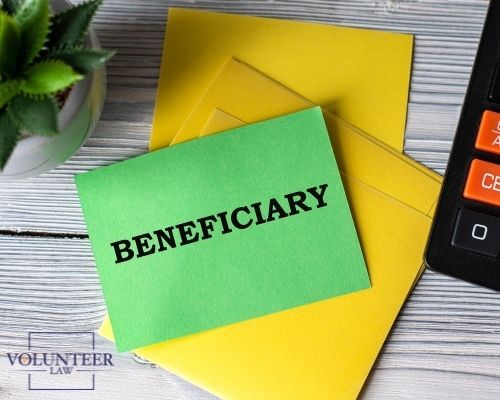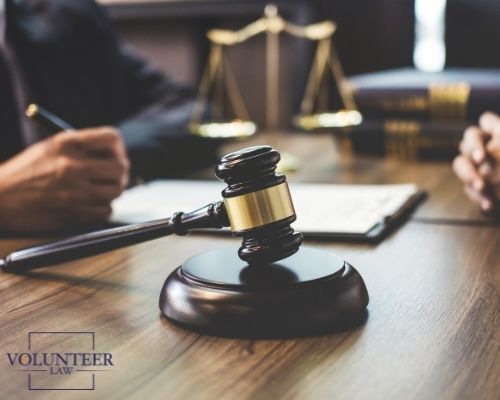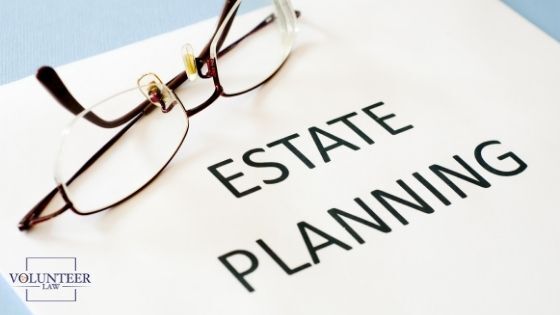As uncomfortable as thinking about death is, failure to address the issue of what will happen after you are gone can have consequences that are even more unpleasant. Estate planning is not something people spend a lot of time on and are very often reluctant to even take the first step. But, If you wait too long to make your wishes known, your loved ones might find themselves embroiled in years’ worth of legal battles over the assets in your estate.
Taking steps while you’re healthy to avoid this situation is far easier than trying to sort out the mess after something has happened. That’s why, at a minimum, people should consult an experienced real estate attorney in Knoxville, TN, to have a thoughtful estate plan drawn in place before they are no longer able to make decisions for themselves.
This article will highlight the most common mistakes people make regarding estate planning in Knoxville, Tn.
Not Having an Estate Plan at all

Some individuals think that they do not need to create an estate plan because they don’t have many assets. This is a common misconception. Everyone has something they would like to leave behind for their loved ones or charities after they die.
When building an estate plan, there are numerous factors to consider, such as:
- What will happen if you and your spouse die simultaneously?
- Who will inherit your assets if you do not have children?
- What will happen to your estate if you become incapacitated?
If you fail to plan and name someone to take care of these matters for you, the property will pass to the state of TN according to intestate succession laws. This could result in your assets being distributed to people you do not know or who might not have your best interests at heart.
Making these decisions ahead of time and avoiding potential complications for your loved ones after you die is possible when you create an estate plan with skilled attorneys in Knoxville, TN.
Not Updating your Estate Plan Regularly
Just because you created an estate plan a few years ago does not mean it is still up-to-date. You need to review your plan regularly and make changes as required. For example, if you get married or divorced, that will affect the plan. Likewise, if you add a beneficiary to your retirement benefits or insurance policies, that too should go into your estate planning documents.
If you do not make changes as needed, the chances are that people you want to exclude from benefiting under your plan may be included and vice versa. This will lead to unnecessary legal disputes. And could mean that your property gets stuck in probate court for months or even years, causing tremendous amounts of stress for your loved ones.
Failing to Discuss with Family

Individuals often do not discuss their plans with anyone other than their lawyers, doctors, and financial advisors. However, the people who will be most affected by your plan are your family members. They need to know what you want to be done if something happens to you so they can carry out your wishes without hesitation.
It is best to let them in on the details of your plan early on, rather than waiting until you are physically or mentally unable to make decisions. This will reassure them that they are doing the right thing and prevent them from feeling like they were disinherited.
Not Naming an Alternative Beneficiary

Most people provide for their spouses to receive a certain percentage of their property when they die. Often, however, the spouse dies before the other person does, and then all of the assets go to someone else instead.
To avoid this situation, you need to name an alternative beneficiary in the event that your primary choice is not available at the time of your death. This can be a friend or relative who you feel will take care of your property responsibly or even a charity.
Not Having a Backup Executor
An executor is a person who is responsible for making sure that your final wishes are carried out after you die. This includes:
- Notifying your beneficiaries about their inheritance
- Distributing your assets according to your will
- Filing all necessary legal documents and tax returns.
If something happens to the executor, you need to provide a backup in your estate plan so that the process can continue without unnecessary delays. This should be someone who knows your wishes and is able to carry them out accordingly. It can be your spouse or other family members.
Not Thinking About your Child’s Future

Even if your child is not yet an adult, you should still consider the time when he or she will be ready to manage their own financial affairs. Several factors can influence this process, including whether your child goes to college and how financially independent they choose to be.
You may want to name a “custodian” to act on your child’s behalf until he or she turns 18. However, you should note that this person does not have complete control over the assets; instead, he or she simply manages them for the benefit of another individual.
You can also consider using a trust account to provide for your child’s future. This is an excellent way to pass on your assets and can help to ensure that they will be protected and properly managed. Since a legal document creates the trust, it also avoids probate and makes sure that your child’s inheritance remains private.
If you appoint someone to assist with your finances, make sure that they are capable of making smart decisions and not be swayed by emotion.
Forgetting about Power of Attorney

A power of attorney is a legal document that allows you to appoint someone else to make decisions for you if you are unable to do so yourself. For example, suppose you become incapacitated and can no longer manage your own financial affairs. In that case, the person you named in power of attorney has the authority to act on your behalf.
This is especially essential if you want to avoid having your assets go through the court system after you die. This process can take months or years, tying up your property and preventing it from being given to your beneficiaries in a timely manner.
Your power of attorney is also valuable when it comes to getting medical treatment for you in the circumstance that you are unable to make those decisions yourself. By appointing someone you trust, you can be sure that the best possible care will be given to you.
Forgetting about Long Term Care

People often view long-term care as a cost for their elderly parents to absorb. However, it is also a major source of expense for many families with children who are not self-sufficient adults. You could end up with a mess for your loved ones if you fail to consider this fact when drafting your estate plan.
Many people are unaware that they can include long-term care benefits in their retirement plans. This ensures that you have the funds to cover your own potential need for this type of treatment before it is too late. Otherwise, Medicaid may be your only option.
If you do not want to use your assets or other sources of retirement savings, consider buying long-term care insurance on your own. This will provide for your medical coverage when you are unable to pay for it yourself.
However you choose to handle this situation, do not forget that long-term care is a major expense many families face today and needs to be addressed in an estate plan. Without adequate protections in place, some people may go bankrupt trying to cover all of the costs.
Not Considering Taxes

Another biggest mistake people make when drafting their estate plan is not considering the tax implications. This could cause significant financial difficulties for your beneficiaries when you pass away.
For example, if you leave your home to your children and it is worth more than $500,000, they will have to pay estate taxes on it. This could reduce the inheritance they receive by as much as 40%.
You can avoid this issue by giving your home to a trust rather than your children. This will protect the inheritance from estate taxes and ensure that your loved ones receive the total value of your property.
Taxes are just one example of the many things that need to be considered when drafting an estate plan. By working with an experienced Knoxville real estate attorney, you can be sure that your plan will account for all of the potential tax implications. This will help to ensure that your loved ones receive the full value of your estate after you die.
Failing to Consult a Reliable Knoxville Real Estate Attorney

Many individuals use DIY forms online for their estate planning documents. However, the available forms may not be suitable for your specific situation since they are very basic in nature. In addition, the will and trust created using these online services often leave families with more questions than answers. Finally, some of these documents are also not considered valid by courts in TN, which can lead to costly legal disputes.
In contrast, a qualified Knoxville real estate attorney will thoroughly review your situation and provide you with expert advice for developing valid documents that meet all of your needs. This ensures that your intentions are honored after death and prevents unwanted problems from occurring.
Not Securing your Estate Plan
You may have hired the best attorney to draft a perfect thoughtful estate plan, but what if your beneficiary cannot find the will, trust, power of attorney, or other documents?
To avoid this problem, make sure to store your estate planning documents in a safe place that only the actual beneficiary will know about. If you want them to know where you plan to store your papers and get multiple copies of the key so they can access it quickly when needed. Just like you would have a fire-proof box for your important documents, you should also have a safe place for your estate planning papers.
Conclusion
Drafting an estate plan can be very complex and involves many separate documents. Making even one mistake can have severe consequences for your loved ones. By working with a trusted real estate attorney in TN, you can ensure that your plan is correctly executed and avoid many of the common mistakes people make when planning their estate.
Volunteer Law Firm, PLLC is a full-service law firm in Knoxville, TN, providing expert legal assistance to individuals and families. We have experienced family law attorneys and real estate attorneys on staff who can help you draft a valid estate plan that meets all of your needs. Contact us today for a consultation!

